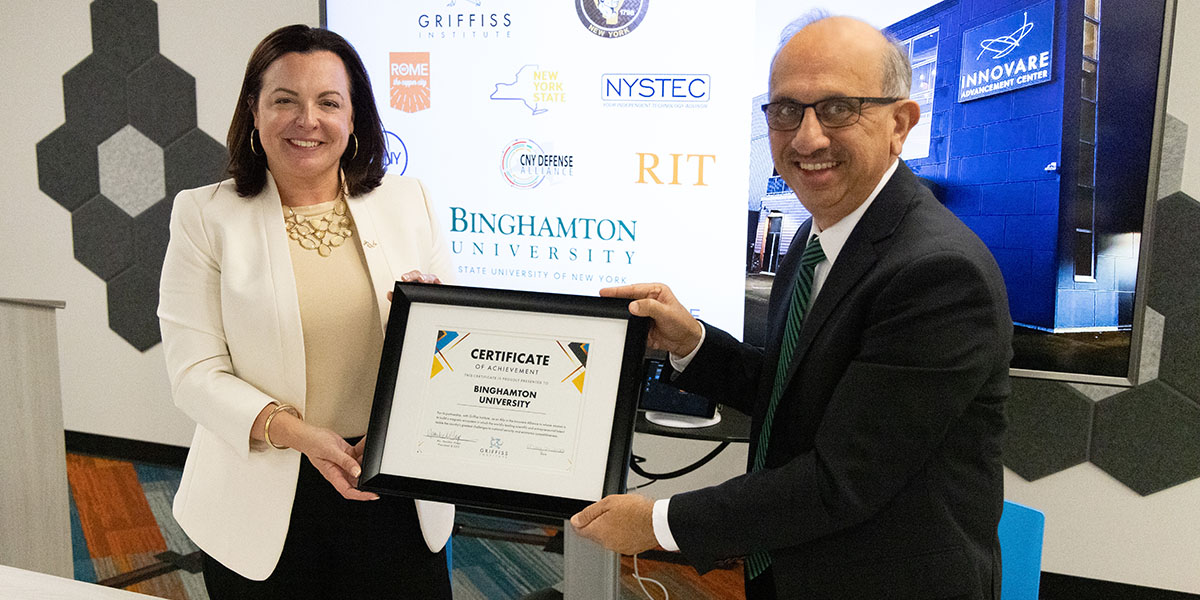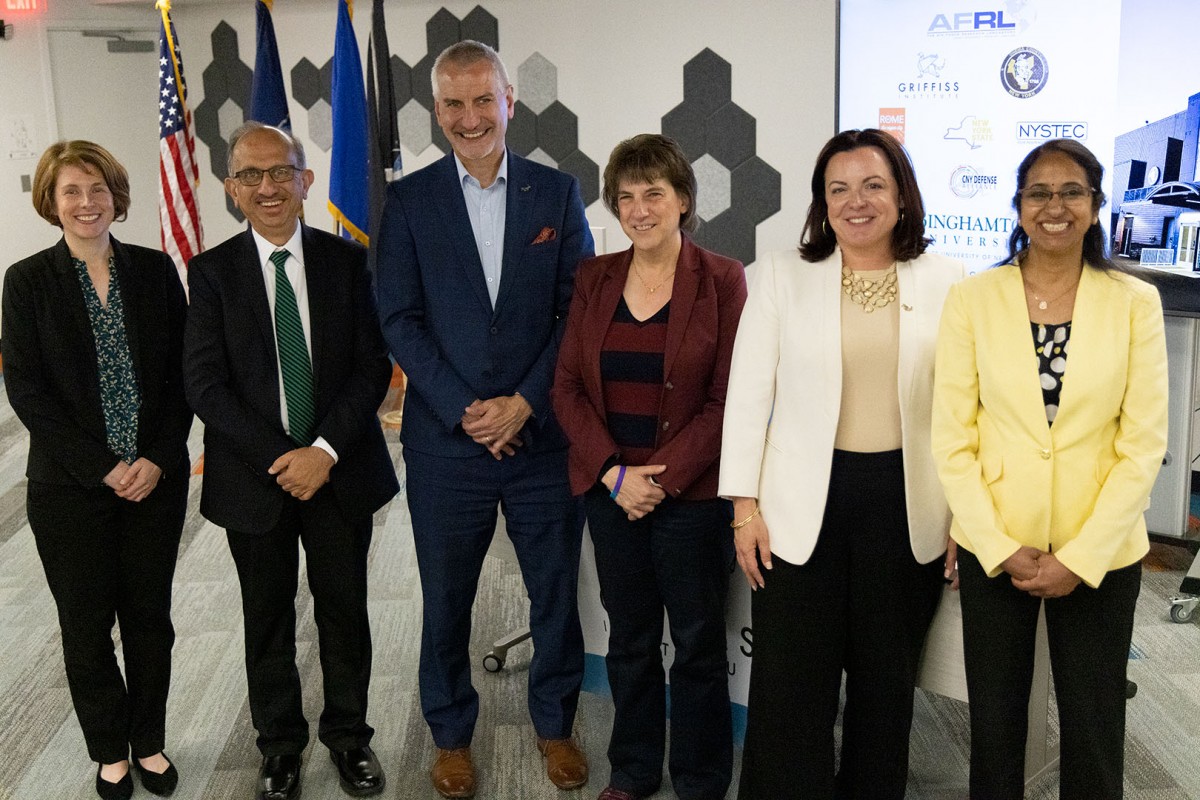Binghamton University, Griffiss Institute to collaborate on tech development
Partnership also includes collaborative talent programs, experiential learning and venture development opportunities

Griffiss Institute Inc. and Binghamton University have signed a Memorandum of Understanding to develop and implement collaborative talent and technology development programs. The partnership aims to leverage interorganizational synergies among upstate New York academic, industrial and defense communities to expand access to high-quality educational, training, research and entrepreneurial opportunities.
The partnership brings the University into the Innovare Alliance, a consortium of eight entities, including Griffiss Institute, Air Force Research Laboratory/RI, Oneida County, the City of Rome, NYSTEC, the State University of New York, the Central New York Defense Alliance and the Rochester Institute of Technology. It is focused on accelerating the development and deployment of emerging technologies for national defense and commercial markets.
The agreement will enable collaboration between the University and Griffiss Institute Inc. to benefit technical, professional and disciplinary education and scholarship for Binghamton University faculty, staff, students and alumni. The partnership will also connect them with experiential learning and venture development opportunities among Griffiss’ partners in government and industry, including service as visiting faculty, student interns and entrepreneurs-in-residence.
One of the goals of the partnership is to explore new and innovative techniques and pedagogical approaches to technical, professional and legal education as well as research and the acquisition of entrepreneurial skills. The collaboration will enable businesses to grow strong and healthy in upstate New York with an ample supply of skilled talent.
“I am happy to welcome Binghamton University to the Innovare Alliance,” said Oneida County Executive Anthony Picente. “The University’s expertise and resources will be invaluable in advancing our region’s research and development efforts. This partnership will undoubtedly lead to new innovations, job opportunities and economic growth for Oneida County and beyond.”
“The Innovare Advancement Center was envisioned as an open, collaborative campus to bring together academia and AFRL professionals to help grow the entrepreneurial opportunities at the Griffiss Business and Technology Park,” said Rome Mayor Jacqueline M. Izzo. “This partnership with Binghamton University continues to build out that academic footprint, opening not only research and learning opportunities but strengthening our ability to nurture and grow the entrepreneurs of the future. The Griffiss Business and Technology Park is a hive of groundbreaking research and development in support of our nation’s national security, and the resources of Binghamton University will further enhance those initiatives.”
“We are excited to partner with Binghamton University to expand access to education and entrepreneurial opportunities in upstate New York,” said Heather Hage, president and CEO of Griffiss Institute. “This partnership will enable us to leverage our strengths and expertise to develop and implement innovative talent and technology development programs that will benefit our communities and enable businesses to grow and thrive.”
“Binghamton University is thrilled to become a member of the Innovare Alliance,” said President Harvey Stenger. “This partnership further expands our research and innovation capabilities in key areas of national priority and strengthens our commitment to increasing access to high-quality education and training programs for our communities and driving economic growth in our region.”
“The collaboration with Griffiss Institute will provide our faculty, staff and students with new and innovative research and learning opportunities,” said Dean Krishnaswami “Hari” Srihari of Binghamton University’s Thomas J. Watson College of Engineering and Applied Science. “Together, we can explore new pedagogical approaches to education and entrepreneurship and connect our students and faculty with more industry partners and experts in cutting-edge areas.”
Michael Hayduk, deputy director of the Air Force Research Laboratory Information Directorate, commonly known as the “Rome Lab,” said, “We welcome Binghamton University to the Innovare alliance. Their expertise in areas such as artificial intelligence, data science, cybersecurity and materials science will be invaluable in advancing our mission of accelerating the development and deployment of emerging technologies. The partnership with Binghamton University will enable Innovare to expand its capabilities and better serve the needs of the defense and commercial markets.”
The Innovare Alliance brings together expertise from academia, industry. and government to facilitate collaboration, innovation and technology transfer. Through the Innovare partnership, allies share resources, expertise and knowledge to advance research and development in areas such as artificial intelligence, data science, cybersecurity and more. The goal of the Innovare alliance is to drive economic growth, strengthen national security, and improve the quality of life for people around the world through the development and deployment of emerging technologies.


